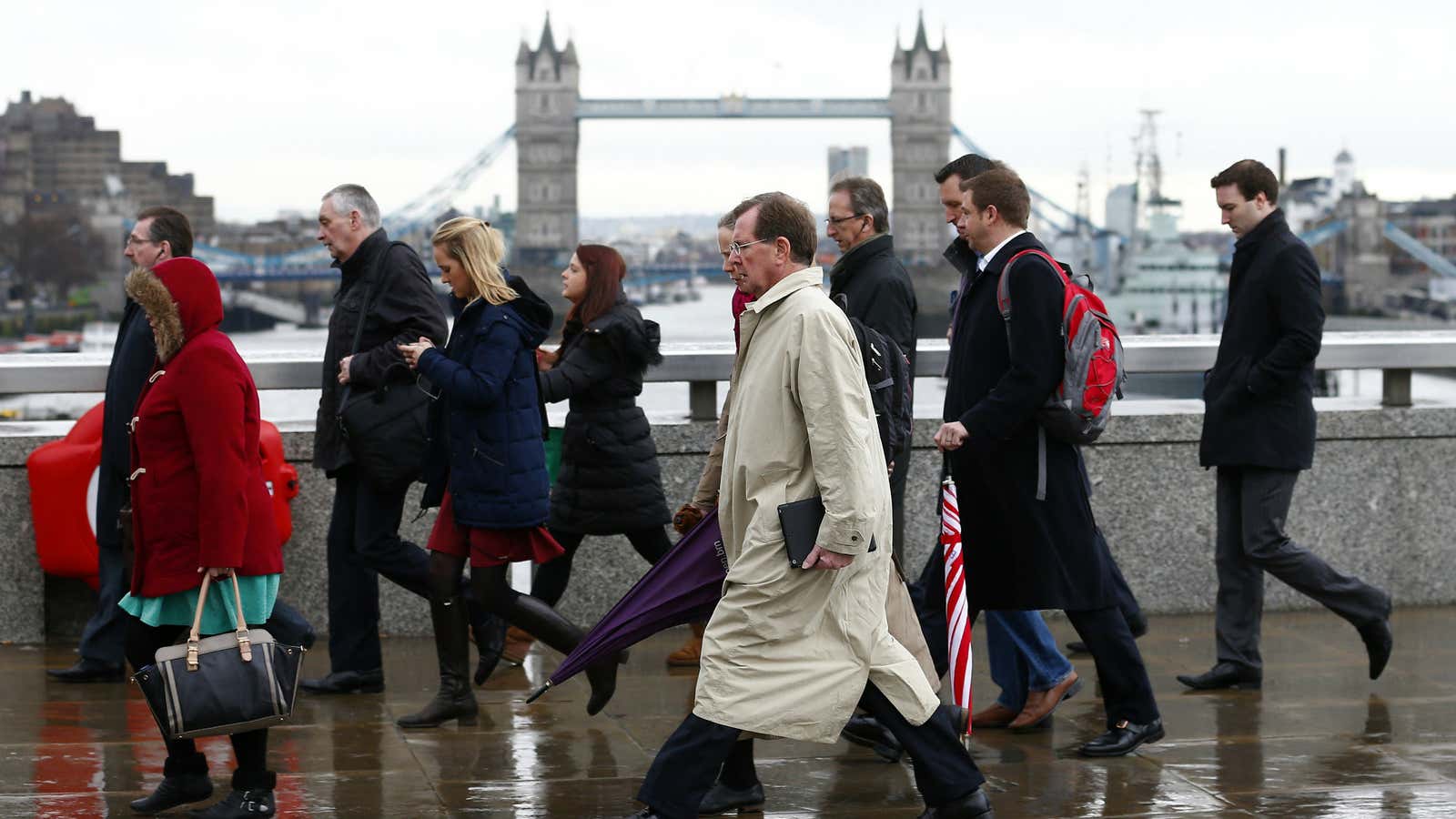The UK has recorded three-and-a-half years of uninterrupted economic growth, its third-longest streak since 1955. (But it’s probably over.)
Gross domestic product increased 0.6% between April and June, including the days after Britain voted to leave the European Union, the Office for National Statistics said today (July 27). The data—which was better than expected—was skewed towards the beginning of that period and only takes into account a week of a post-Brexit world. And most of the GDP figure is derived from estimates of economic activity, as opposed to hard data.
Already, there have been signs of the brutal damage that the Brexit vote could have on the nation. Surveys suggest the economy contracted in July at its steepest pace since 2009. An index of the services industry, which makes up 80% of the UK economy, plunged to a seven-year low.
Azad Zangana, a senior European economist at asset manager Schroders, warns of a 40% chance of an imminent recession. Economists estimate growth to fall 0.1% in the next two quarters.
Though growth was looking relatively strong before the Brexit vote, it’s nothing compared to the 63 uninterrupted quarters of economic expansion that happened before the financial crisis in 2008.
